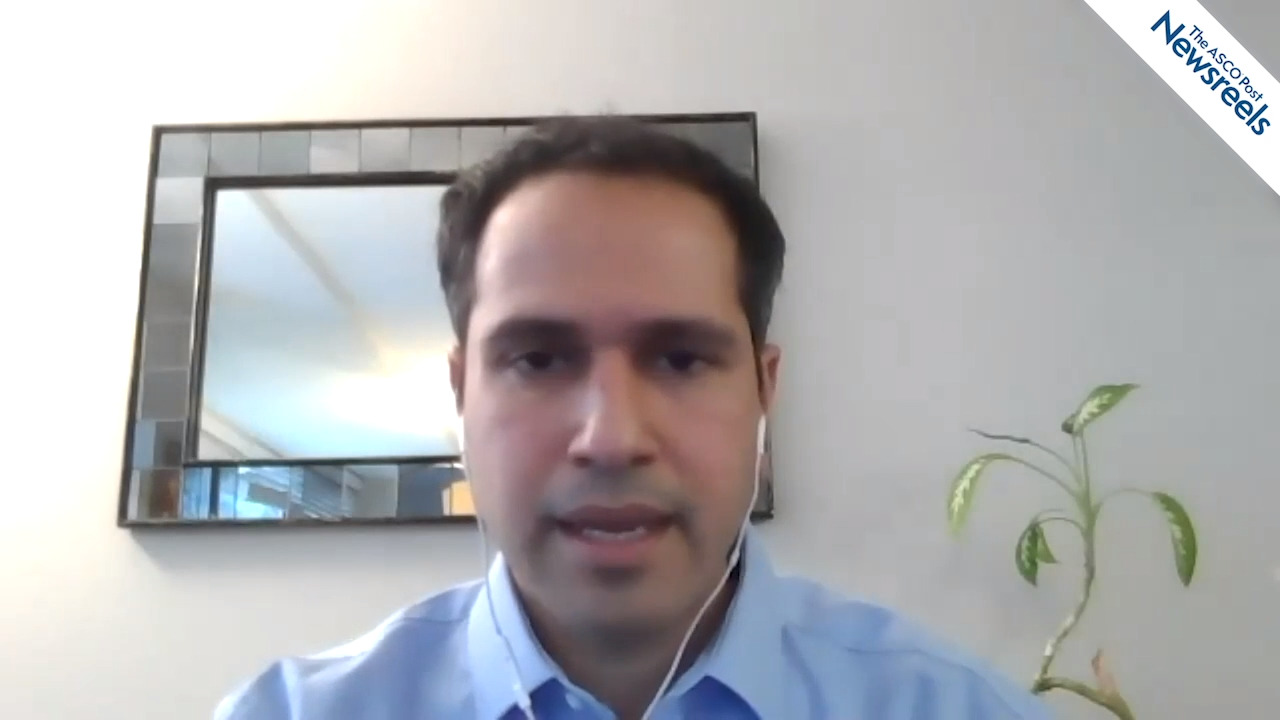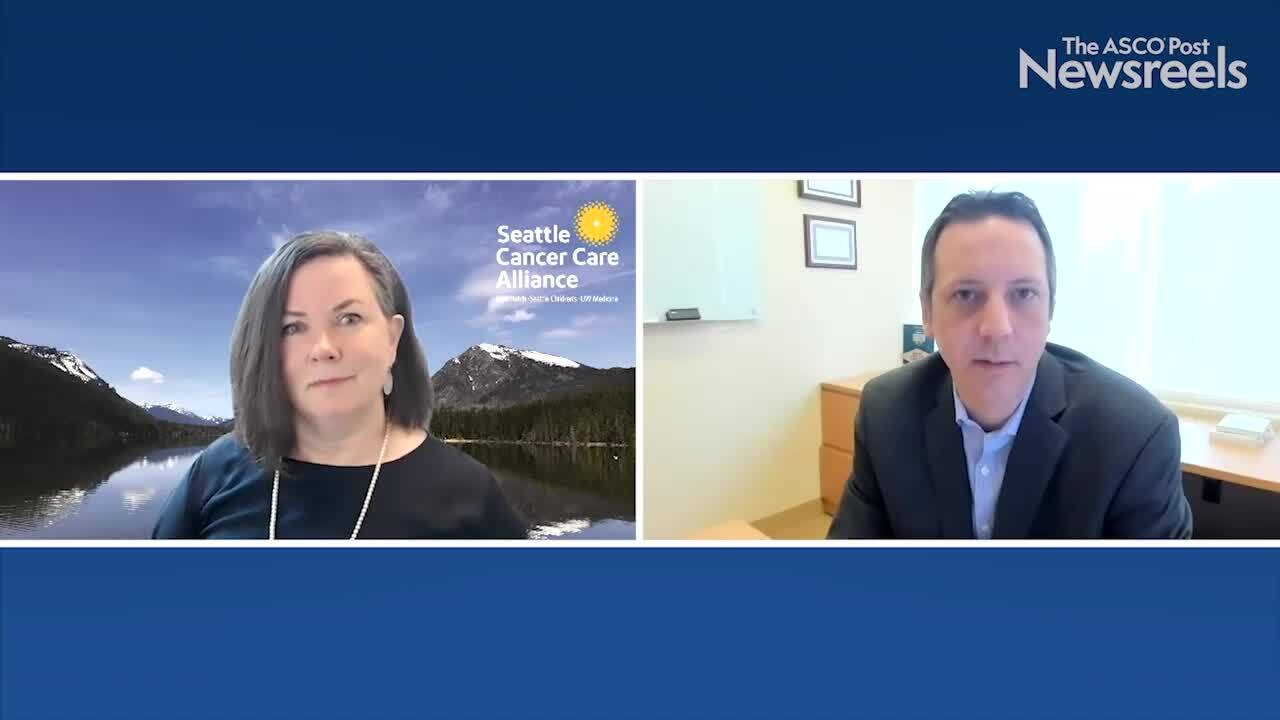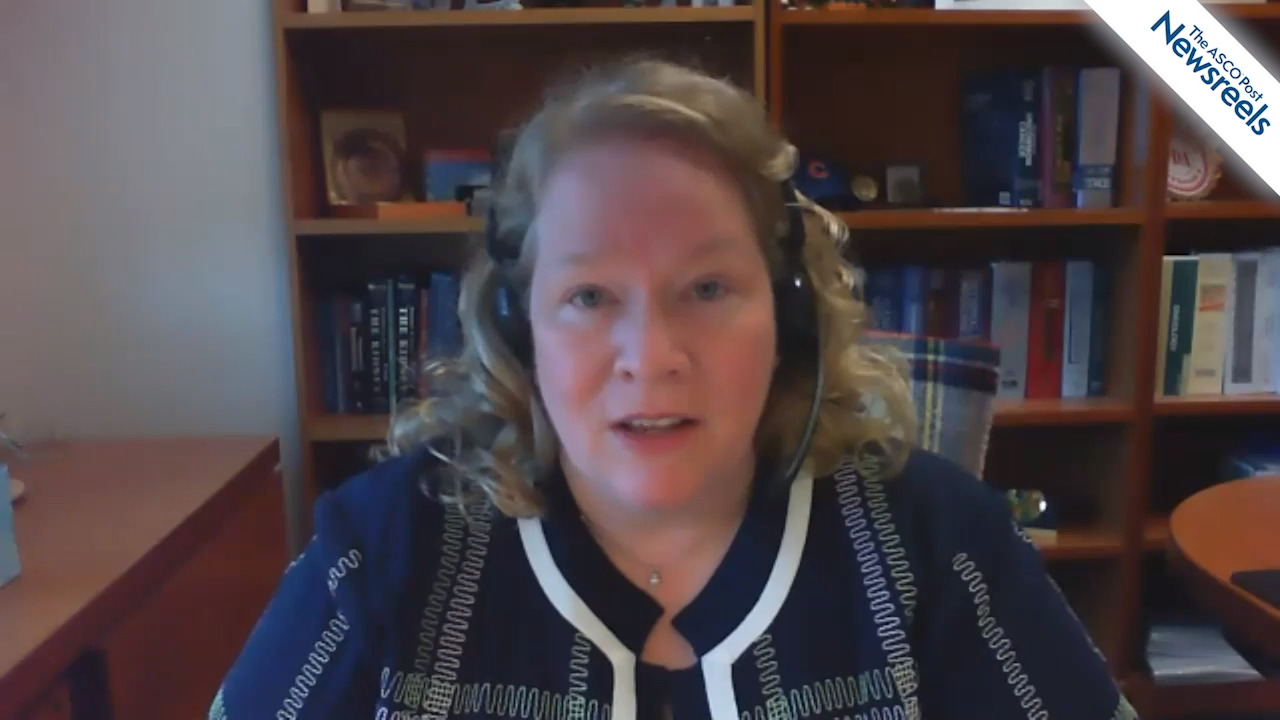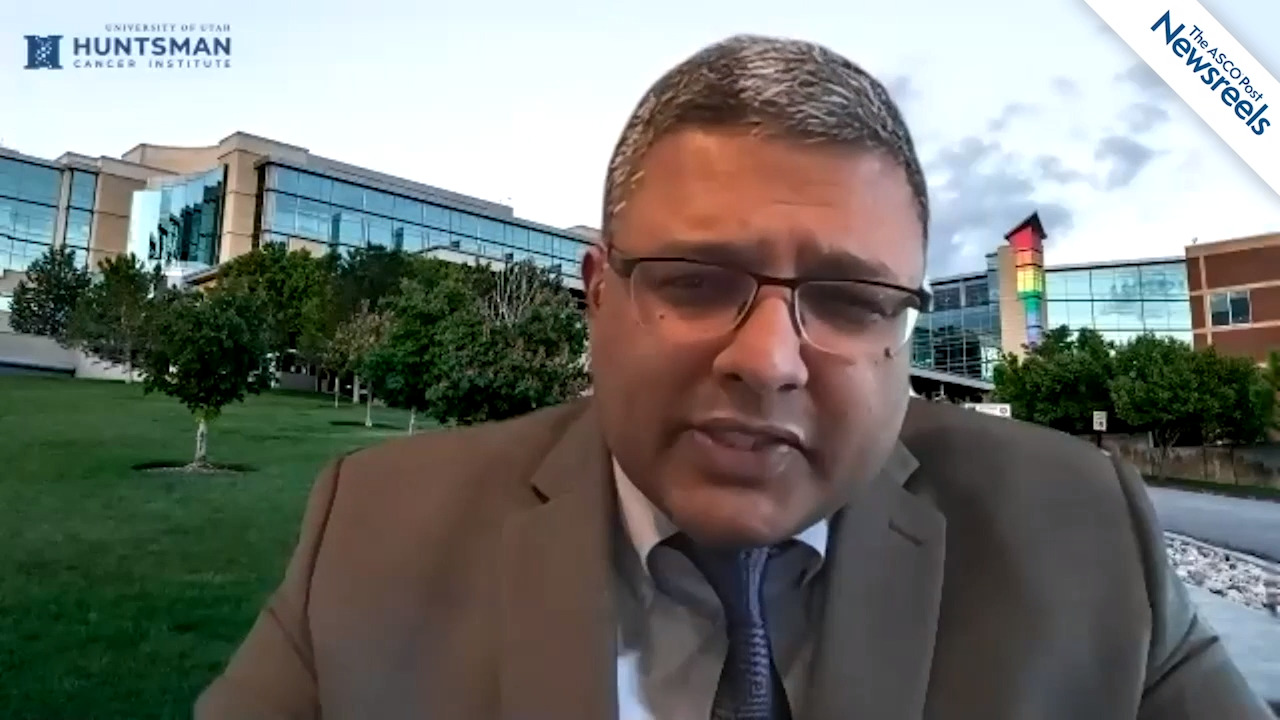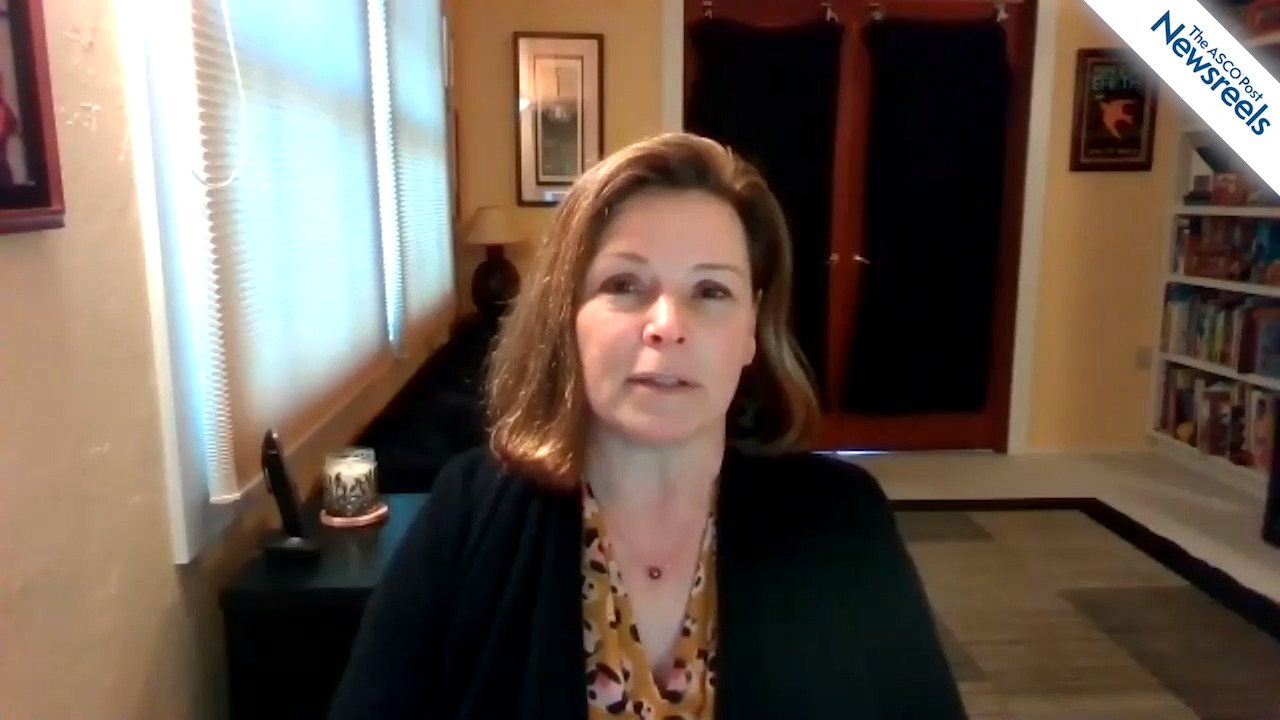Related Videos
Shivan J. Mehta, MD, MBA, on Preventing and Controlling HPV-Associated Cancers
Shivan J. Mehta, MD, MBA, of Abramson Cancer Center at the University of Pennsylvania, discusses how insights from behavioral economics could be harnessed to improve HPV vaccination rates, thus lowering the rate of cervical, genital, and head/neck cancers, all of which are linked to HPV.
Gabrielle A. Zecha, PA-C, MHA, and Aaron Begue, MS, RN, NP-C, OCN: The Role of Advanced Practice Providers in Oncology Care
Arlene O. Siefker-Radtke, MD, on Urothelial Bladder Cancer: New Settings for Immune Checkpoint Inhibitors
Arlene O. Siefker-Radtke, MD, of The University of Texas MD Anderson Cancer Center, discusses the changing therapeutic landscape in which atezolizumab, avelumab, and pembrolizumab have either been approved or are under review for treating urothelial bladder cancer in the metastatic, superficial, and adjuvant settings.
Thomas K. Varghese, Jr, MD, on the Effects of the COVID-19 Pandemic on Cancer Care
Thomas K. Varghese, Jr, MD, of Huntsman Cancer Institute at the University of Utah, summarizes a panel discussion on how the COVID-19 pandemic has interrupted cancer screenings, when telemedicine works and when it doesn’t, opening alternative care sites in the community, and the emotional and mental toll the coronavirus has taken on health-care providers.
Susan M. Swetter, MD, on Molecular Testing for Cutaneous Melanoma
Susan M. Swetter, MD, of Stanford Cancer Institute, discusses molecular prognostic tests for cutaneous melanoma, which may improve staging accuracy, reduce unnecessary sentinel lymph node biopsies, and inform decisions on surveillance imaging and/or adjuvant therapy.
